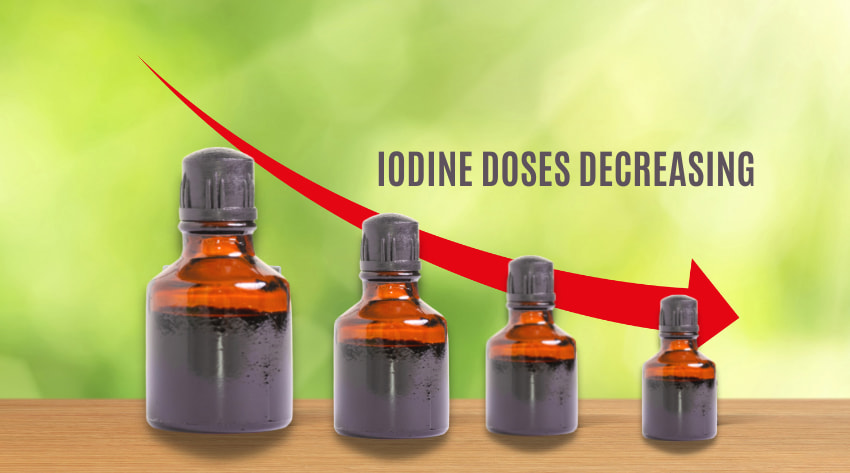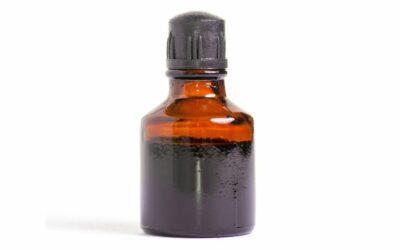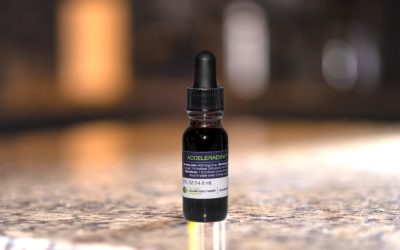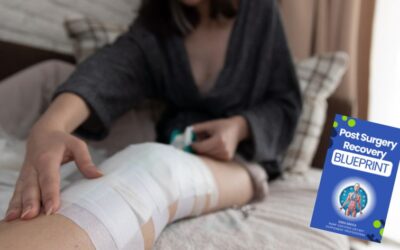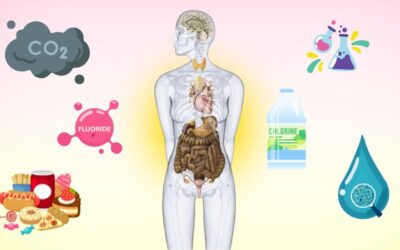Many practitioners question whether it’s safe to give children iodine supplements. Most practitioners don’t recommend more than 150 to 290 micrograms daily for anyone, let alone children. However, not only do children and pregnant women need iodine, but their needs are more important than the general population. Many leading iodine experts suggest at least 12,000 to 18,000 micrograms daily, which is about 45 times higher.
Did you know that 96% of the US population is deficient in iodine?
Symptoms of Iodine Deficiency
Symptoms of iodine deficiency and low thyroid include puffy skin, hoarse voice, sparse and coarse hair, impaired mental functioning, and depression.
Children and fetuses experiencing iodine deficiency are at high risk of:
- Mental Retardation
- Dyslexia
- ADHD
- Hyperactivity
- Short Stature
- Decreased Child Survival
- Miscarriages
- Stillbirths
- Apathetic children with lowered capacity for movement and speech
- Alzheimer’s disease
- Thyroid and Breast Cancer
Why Pregnant Women and Children Need Iodine Supplementation

Iodine Support Apoptosis. Apoptosis is programmed cell death of unhealthy cells to protect against cancer and to facilitate healthy growth in fetuses and children. During pregnancy, the fetus undergoes more apoptosis than in any other development stage. Even the FDA suggests 47% more iodine for pregnant women and 93% more for lactating women.
Iodine Increases IQ. Low iodine is associated with low IQ; a difference of up to 13.5 points as cited in the Bleichrodt study of children. Iodine not only chelates or removes lead, but prevents lead from lodging in the body in the first place (Flechas). If enough iodine is taken, it pushes out fluoride, a culprit responsible for lead accumulation in the body. Furthermore, low thyroid function decreases brain circulation, which slows intellectual function, and causes cognitive impairment, memory loss, depression, slowness of mind, anxiety, suicidal tendencies, and a variety of psychiatric disorders.
Iodine Improves Mood. Depression and Anxiety are rampant; iodine supplementation may help decrease mood disorders. Additionally, research has shown that parasites in the gut eat up serotonin, 95% of which is produced in the intestines. When parasites are destroyed with iodine, there is an increase in serotonin, which helps elevate mood and improve overall mental functioning.
Iodine Helps Negate EMF Side Effects. Today our youth are constantly on their smartphones and devices, being exposed to EMFs around the clock. A recent study in the International Journal of Radiation Biology (2010) shows that the frequency emitted by cell phones induces hypothyroidism.
Iodine Helps Support Protein Synthesis. Because iodine is essential in thyroid hormone synthesis, it affects increased protein synthesis and increased oxygen consumption. Thyroid hormones are essential for children as they activate key biochemical reactions including protein synthesis, enzymatic activities, and organ development including the brain, heart, muscles, pituitary, and kidneys.
Iodine Destroys Pathogens, Molds, Fungi, Parasites, and Malaria. In an age of antibiotics, where superbugs are evolving, iodine can be used to effectively treat and prevent infections.
Iodine Supports Immune Function. Iodine is an anti-inflammatory that plays an important role in the immune system. Since all disease is associated with inflammatory response, iodine becomes key for youthing the body.
Iodine Eliminates Halogen Toxins. Children are consistently consuming a diet filled with GMOs, Bromine, fluoride, Chlorine, Pesticides, Herbicides, and more. Iodine helps discharge these toxins safely.
Iodine Regulates Estrogen Production. Iodine governs estrogen production by the ovaries. Estrogen and progesterone compete for the same receptor site and infertility and miscarriage are both associated with estrogen dominance and progesterone deficiency, which links back to iodine deficiency. The World Health Organization has related iodine deficiency to decreased fertility and increased perinatal and infant death.
When you look at the history of iodine studies and dosage recommendations, the results are drastically different. As early as 1911 people normally took between 300,000 and 900,000 micrograms without negative side effects.
Why Have Iodine Dosages Decreased?
In 1948 there was a poorly performed study that was never replicated, concluding that theoretically hypothyroidism could occur as a result of excess iodine; this was known as the Wolff-Chaikoff effect. Even in this study, they recommended a dose of 2,000 micrograms daily. Following this study, no clinical symptoms of hypothyroidism have ever been noted with higher doses according to Dr. Mark Sircus. Sircus, a world expert on iodine, states people may safely take 10,000 to 200,000 micrograms without clinically adverse effects.
One of the reasons practitioners fear excess iodine supplementation is that there may be a transient increase of TSH (Thyroid Stimulating Hormone) for 6 months; this is related to the fact that the whole body is deficient in iodine, and TSH stimulates the production of the sodium-iodide-symporter (NIS). Without enough NIS, iodine cannot enter the cells and be utilized.
Proof that an increase in TSH doesn’t necessarily correlate to hypothyroidism is that people who increase their iodine do not have symptoms of hypothyroidism such as fatigue, hair loss, headaches, weight gain, and dry skin, and they maintain normal T3 and T4 levels. TSH doesn’t tell the whole story. Essentially there is an increase in TSH temporarily because it “wakes up” the body in recognizing every one of the 100 trillion cells want iodine– not just the thyroid!
Studies to Support Iodine Supplementation
It is interesting to note, when addressing the question of safe dosage, that higher iodine levels have been used in studies since the early 1900s.
Results Lead To U.S Salt Being Iodized
Study by Dr. David Marine (1917 – 1922)
In 1917 through 1922, Dr. David Marine proved that iodine reversed goiter in a study in which 2,000 schoolgirls were given an equivalent of 18,600 micrograms daily for 2 1⁄2 years with a dramatic success rate. This study was the reason the U.S. began to iodize salt.
Sadly today less than 20-25% of salt is iodized in addition to being contaminated with microplastics. And with the unfounded “no salt-low salt” scare from the 1984 NHANES study, even fewer are receiving iodine from iodized salt, which only has about 10% bioavailability.
Potassium Iodide Reversed Lung Cancer Tumors in Mice
Study by Dr. Zhang (2003)
In 2003 Dr. Zhang showed that potassium iodide reversed lung cancer tumors in mice. The total amount administered was 100,000 micrograms daily for 20 days, and this is approximately 50 times more than Wolff – Chaikoff recommended in 1948. The study lasted for 60 days: 34 days to grow 5 mm tumors, and 26 days for the lung cancer tumors to significantly decrease.
Reversed Fibrocystic Breast Disease
Study by Dr. Ghent (1993)
In 1993, Dr. Ghent administered to 1,368 patients 5,000 micrograms daily with no evidence of the Wolff-Chaikoff theoretical problem of hypothyroidism. At this dosage, he witnessed reversed fibrocystic breast disease with great rates of healing. Iodine deficiency is not only associated with fibrocystic breast disease but also with higher rates of breast cancer.
7-Year Study “The Iodine Project” Unveils Multiple Positive Effects From Increased Iodine Doses
Dr. Guy Abraham, Dr. David Brownstein, and Dr. Jorge Flechas (1997 – 2005)
In a most significant study called the Iodine Project, conducted from 1997 through 2005, Dr. Guy Abraham, Dr. David Brownstein, and Dr. Jorge Flechas followed 4,000 patients and administered 12,500 to 100,000 micrograms daily, with 100,000 micrograms administered to diabetics primarily, because low thyroid function is also associated with Type 2 diabetes.
They had positive results with only three adverse reactions out of 4,000 people (possibly allergic reactions to the binding agents, excipients, fillers, preservatives, and/or synthetics commonly found in tablets, capsules, and even liquids as opposed to the bioavailable form of iodine itself).
This research group theorized that because in Japan the average intake was 13,800 micrograms, and Japan had significantly less breast and prostate cancer and better health and longevity than the US, higher doses of iodine could be safely used.
In this 7- year study, they observed reversed fibrocystic breast disease, decreased insulin requirements in diabetics, significantly less need for medication for hypothyroidism, resolution for fibromyalgia, and also the resolution of migraine headaches. This dosage recommendation is exponentially greater than the current RDA.
What is a Safe Amount of Iodine To Take?
No one has ever died from iodine overdose or allergic reactions.
The risk-to-benefit ratio of the recommended iodine doses is extremely safe for healing.
First taking Acceleradine, which is the only monoatomic, toxin-free, and 100% bioavailable iodine supplement, is the only one that you can be assured you won’t have an allergic reaction to.
I recommend starting slowly, as it detoxes all of the cells of toxins and radiation as it is providing a sufficient amount of iodine.
Start with 3 drops in water on an empty stomach three times a day. Increase that dose by 1 drop per dose per day until you reach 25 drops three times a day.
For Children 0-2: Take ¼ the adult dose.
For Children 2-6: Take ½ the adult dose.
For Pregnant Women: Take up to 47% more than the Adult Dose.
For Lactating Women: Take up to 93% more than the Adult Dose.
Learn the Facts About Iodine Blood Tests
Are Iodine Blood Test Results a good indication of whether you should be taking iodine supplementation? In this video, I explain the facts about Iodine Blood Tests.
MORE IODINE ARTICLES
What Is Iodine
What is Iodine? Iodine is a chemical element with the symbol I and atomic number 53. It belongs to...
Why This Tincture Is The Best Iodine Supplement
Iodine supplementation is controversial, especially when you talk to medical practitioners and...
Health Benefits Of Iodine
Iodine is the wildcard in supporting the immune system. Iodine is found in every single one of our...
Iodine: The Universal Health Mineral
Iodine is found in every cell of the body and having adequate iodine levels is essential to health. Learn about the many important functions of Iodine…
Sara Banta
Sara Banta is a Stanford University Graduate with a Degree in Economics and Psychology, and a certified Natural Supplement Expert & Graduate of the Institute for Integrative Nutrition. Sara is the Founder of Accelerated Health Products and host of the health & wellness podcast, Accelerated Health Radio.


